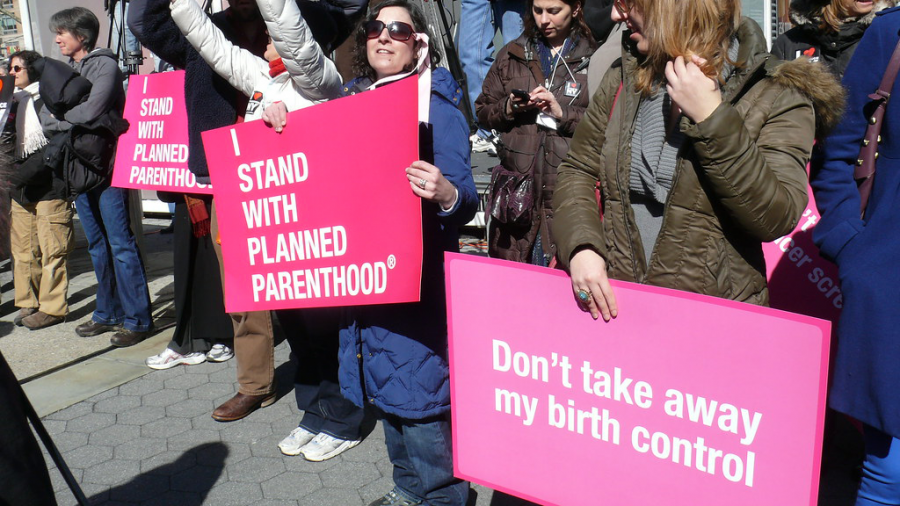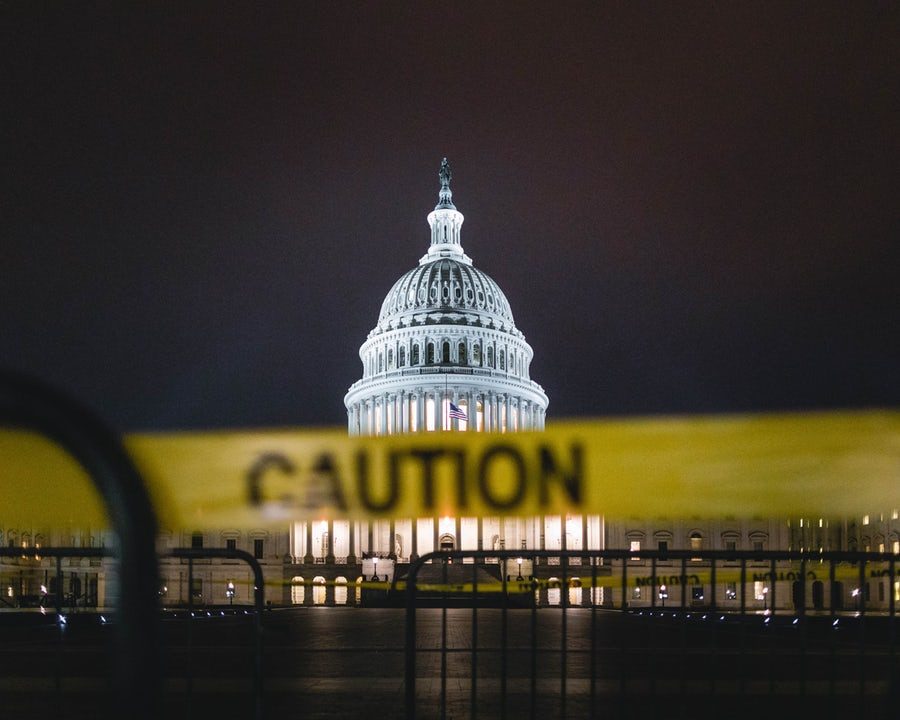Planned Parenthood rejects Title X funding after Trump administration’s Protect Life rule
Supporters rally in favor of Planned Parenthood after Title X funding decision.
September 17, 2019
Planned Parenthood recently announced that they would be cutting their Title X funding in response to a new Trump administration rule. The rule states that Title X, the federal family planning program which helps women gain access to contraceptive and other health services, is forbidden to refer their patients for an abortion due to the enforcement of the Protect Life Rule. The news of Planned Parenthood withdrawing funds came on August 19, stating it could force withheld medical information.
Many news outlets, such as The Cut, have explained that although the funding is being cut, it could still lead to consequences for women’s health. Title X has provided approximately four million insured and uninsured women with reproductive services as well as STD and cancer screenings since they were enacted in 1970. Many are concerned due to the fact that Planned Parenthood has received nearly $60 million a year in Title X funds, which has gone towards helping nearly two million women.
“While we are incredibly concerned the panel did not recognize the harm of the Trump-Pence administration’s gag rule [also known as the Protect Life rule] we will not stop fighting for the millions across the country in need for care,” Leana Wen, former Planned Parenthood President, said.
This new gag rule is limited to cases of rape or incest and those using Title X funding cannot provide abortions. The US Department of Health and Human Services made a statement on July 15 that they would begin enforcing the new rule in all taxpayer clinics across the country mid-September. Alexis McGill Johnson, the current president for Planned Parenthood, was recently interviewed by CBS News about the “luxury” of being either a health care clinic or advocacy group.
“We are primarily a health care provider. We provide access to sexual and reproductive health, in some cases primary care. We’re not political by nature but we’ve been politicized, and that fight has actually been our focus – to ensure that our health centers stay open. We think it’s critical to stop these bills, stop these bans against a women’s ability to get access to an abortion,” Johnson said.
Some anti-abortion groups have spoken out about Planned Parenthood being defunded and are looking forward to the actions taken by the Trump-Pence administration. Although the Title X funding will be withdrawn, Planned Parenthood will still receive about $400 million in Medicaid funds. Medicaid is the largest reproductive health care payer who helps nearly 75% of families who are with a planning service.
“For over 50 years, Medicaid has helped provide affordable health insurance coverage to people with limited incomes and resources in the United States. Without this joint federal-state program, too many Americans would be unable to access basic health care. All people need and deserve equal access to comprehensive health care, including sexual and reproductive health care,” Planned Parenthood Action Fund, on their website discussing Medicaid, said.
Due to the new restrictions placed on Title X funding, other planning services such as Maine Family Planning have also announced they would withdraw from the program. In addition, they will also be suing, much like Planned Parenthood, in federal court in order to potentially block the new rule.
“[This] is only a short-term solution and we are aggressively seeking other sources of public funding. If we are not able to secure an alternative source of funding, there will be a danger of having to close clinics. [It can be] cost-prohibitive when you’re talking about these tiny clinics,” Deirdre Fulton-McDonough, director of communications at Maine Family Planning, said.
Although the House of Representatives passed a bill saying it would block the Trump-Pence administration’s gag rule, the Senate has not acted upon it. Depending on the outcome, this could be a big win for reproductive and women’s rights and could continue to help millions of lower tax bracketed families.
















